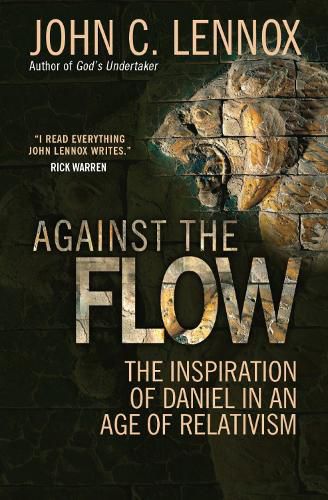Readings Newsletter
Become a Readings Member to make your shopping experience even easier.
Sign in or sign up for free!
You’re not far away from qualifying for FREE standard shipping within Australia
You’ve qualified for FREE standard shipping within Australia
The cart is loading…






This title is printed to order. This book may have been self-published. If so, we cannot guarantee the quality of the content. In the main most books will have gone through the editing process however some may not. We therefore suggest that you be aware of this before ordering this book. If in doubt check either the author or publisher’s details as we are unable to accept any returns unless they are faulty. Please contact us if you have any questions.
Daniel’s story is one of extraordinary faith in God lived out at the pinnacle of executive power. It tells of four teenage friends, born in the tiny state of Judah about twenty-six centuries ago, but captured by Nebuchadnezzar, emperor of Babylon. Daniel describes how they eventually rose to the top echelons of administration. Daniel and his friends did not simply maintain their private devotion to God; they maintained a high-profile witness in a pluralistic society antagonistic to their faith. That is why their story has such a powerful message for us. Society tolerates the practice of Christianity in private and in church services, but it increasingly deprecates public witness. If Daniel and his compatriots were with us today they would be in the vanguard of the public debate. What was it that gave that ancient foursome, Daniel and his three friends, the strength and conviction to be prepared, often at great risk, to swim against the flow?
Few parts of Scripture are more conscious of the clash between the wisdom of God and the wisdom of the world than the Old Testament book of Daniel. Few authors today are more expert at analysing and articulating both than John Lennox. It is a masterful combination, and the result is extraordinary. - Revd Dr John Dickson, Founding Director, Centre for Public Christianity, Honorary Fellow, Department of Ancient History, Macquarie University
$9.00 standard shipping within Australia
FREE standard shipping within Australia for orders over $100.00
Express & International shipping calculated at checkout
This title is printed to order. This book may have been self-published. If so, we cannot guarantee the quality of the content. In the main most books will have gone through the editing process however some may not. We therefore suggest that you be aware of this before ordering this book. If in doubt check either the author or publisher’s details as we are unable to accept any returns unless they are faulty. Please contact us if you have any questions.
Daniel’s story is one of extraordinary faith in God lived out at the pinnacle of executive power. It tells of four teenage friends, born in the tiny state of Judah about twenty-six centuries ago, but captured by Nebuchadnezzar, emperor of Babylon. Daniel describes how they eventually rose to the top echelons of administration. Daniel and his friends did not simply maintain their private devotion to God; they maintained a high-profile witness in a pluralistic society antagonistic to their faith. That is why their story has such a powerful message for us. Society tolerates the practice of Christianity in private and in church services, but it increasingly deprecates public witness. If Daniel and his compatriots were with us today they would be in the vanguard of the public debate. What was it that gave that ancient foursome, Daniel and his three friends, the strength and conviction to be prepared, often at great risk, to swim against the flow?
Few parts of Scripture are more conscious of the clash between the wisdom of God and the wisdom of the world than the Old Testament book of Daniel. Few authors today are more expert at analysing and articulating both than John Lennox. It is a masterful combination, and the result is extraordinary. - Revd Dr John Dickson, Founding Director, Centre for Public Christianity, Honorary Fellow, Department of Ancient History, Macquarie University